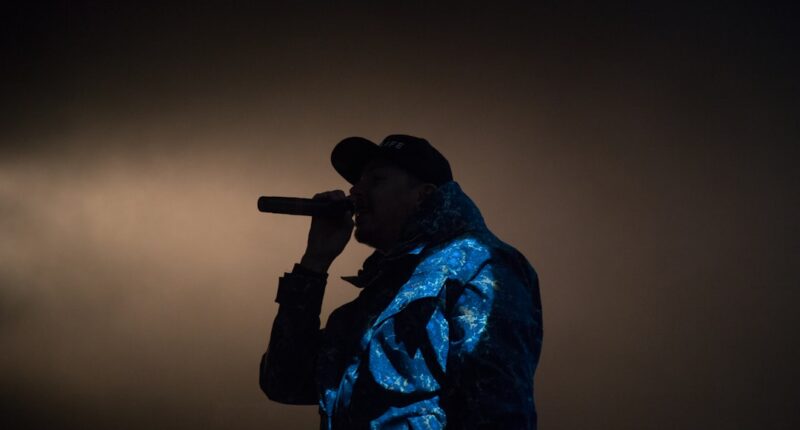The success of musicians in the fiercely competitive modern music industry is greatly dependent on their strategic marketing efforts. To effectively promote their work and engage with their target audience, artists now need to have a well-thought-out marketing plan in addition to their excellent musical compositions. In order to help musicians succeed in this dynamic industry, we will examine the many facets of strategic marketing for musicians in this blog post and offer insightful advice and tactics.
Key Takeaways
- Strategic marketing is crucial for music artists to succeed in the industry.
- Understanding the music industry database can help artists identify their target audience.
- A winning music promotion strategy involves a combination of online and offline marketing techniques.
- Targeted music marketing techniques include email marketing, playlist placement, and influencer collaborations.
- Building a strong music brand involves creating a unique image and consistent messaging across all platforms.
The music industry database is one of the most important resources for artists’ strategic marketing. This database includes a plethora of industry-related data, such as information on radio airplay, streaming numbers, music sales, & customer demographics. Artists can learn a great deal about their target market & make well-informed decisions about their marketing strategies by examining this data. Artists can access data from the Music Industry Database about the success of their prior releases, fan demographics, and the popularity of various genres. With this information, artists can better understand their audience’s preferences and spot trends, allowing them to adjust their marketing strategies.
For musicians to become more visible and connect with their intended audience, they need to have a strong music promotion plan. This plan should consist of a number of elements, including defining target markets, choosing the best channels for promotion, and establishing specific goals & objectives. Any marketing strategy must have goals and objectives.
Artists ought to specify their goals for promoting their music, be it growing their fan base, obtaining more streams, or securing more live engagements. These objectives will direct their marketing initiatives & enable them to assess their progress. Artists must determine their target markets in order to develop an effective music promotion plan. Understanding the characteristics, passions, and preferences of their audience is necessary for this. Artists can select the most efficient promotional channels to reach their fans and customize their marketing messages by understanding who their fans are.
| Metrics | Description |
|---|---|
| Target Audience | The specific group of people that the marketing plan is aimed at. |
| Brand Identity | The unique image and personality that the artist wants to convey to their audience. |
| SWOT Analysis | An evaluation of the artist’s strengths, weaknesses, opportunities, and threats in the music industry. |
| Marketing Mix | The combination of product, price, promotion, and place that the artist uses to reach their target audience. |
| Content Strategy | The plan for creating and distributing valuable and relevant content to attract and retain the target audience. |
| Social Media Engagement | The level of interaction and connection that the artist has with their audience on social media platforms. |
| Conversion Rate | The percentage of the target audience that takes a desired action, such as purchasing music or attending a concert. |
| Return on Investment | The amount of revenue generated compared to the amount of money spent on the marketing plan. |
In the music business, targeted marketing is an effective tactic. Artists can boost their chances of success and make the most impact by concentrating their marketing efforts on particular portions of their audience. A variety of strategies are available to musicians for focused music promotion. Making content specifically for each audience segment is one strategy.
Artists are able to produce content that appeals to every demographic by knowing the tastes and interests of their fans. This could involve releasing various iterations of a song, producing special content for fan clubs, or working with musicians from other genres in order to reach a larger audience. Using information from the music industry database to pinpoint possible fans is another tactic.
Through data analysis, artists can target fans of similar artists or genres with marketing efforts. This could entail contacting influencers who have a sizable following in those categories or launching targeted advertising campaigns. For musicians to stand out in a crowded market, developing a strong music brand is crucial. A music brand includes an artist’s distinct identity, values, & image in addition to their name or logo. Through the development of a strong brand, artists can stand out from the competition and gain a devoted following.
Identifying their own identity is the first step towards developing a powerful music brand for artists. This entails being aware of their musical preferences, strong points, and unique selling propositions. The message that artists wish to get through to their audience should also be clearly defined, as should their brand values. Artists can begin developing their brand image through a variety of platforms, including social media presence, album artwork, and music videos, once their brand identity has been established.
Establishing a strong brand requires consistency, so artists should make sure their brand image is the same on all platforms & that it reflects their core values. The way musicians promote their music has been transformed by social media. It offers an easy and affordable means of sharing content, establishing a solid online presence, & interacting with fans. Artists should strategically utilize various social media platforms to optimize their impact in music promotion, as they offer distinct advantages.
Sharing visual content, such as behind-the-scenes photos, music videos, and live performances, is a great idea on platforms like Instagram and TikTok. These platforms give artists the opportunity to interact with their fans, create buzz about upcoming releases, and show off their individuality. For sharing news and updates, social media sites like Facebook and Twitter are better suited.
These platforms enable artists to communicate with their fans via direct messages and comments, as well as to reveal tour dates and new releases. Strategic marketing for musicians includes music advertising as a key element. It enables musicians to connect with a larger audience and create excitement about their music. To properly promote their work, musicians can employ a variety of music advertising techniques.
Using Facebook, YouTube, Spotify, and other platforms for targeted advertising campaigns is one tactic. These platforms give artists the ability to target particular locations, interests, & demographics to make sure the right people see their advertisements. Retargeting strategies are another tool that artists can use to connect with fans who have previously expressed interest in their music.
Working together with brands and influencers is an additional tactic. Artists may expand their fan base & establish credibility by collaborating with companies that share their values and appeal to their target market. By working together and promoting content, influencers, on the other hand, can assist musicians in connecting with their intended audience and building buzz about their music. In order to increase their visibility and reach, artists can greatly benefit from working with influencers & brands. Influencers possess a substantial fan base & can assist artists in connecting with their intended audience, whereas brands offer resources & avenues for promotion.
Artists should select influencers who share the same values as their brand & appeal to their intended audience when working with them. In addition, artists should make sure that both sides are clear about their roles and expectations and that the collaboration is mutually beneficial. Artists should select brands that are compatible with their ideals and intended audience when working with them. In addition, artists ought to make sure that both sides gain from the partnership by negotiating reasonable terms. This could entail making music videos with the brand, sponsoring events, or producing co-branded content.
To ensure that their marketing efforts are successful and that they make well-informed decisions, musicians must analyze music performance metrics. A range of metrics, including streaming figures, social media interactions, and ticket sales, are available for artists to examine. Artists are able to recognize patterns, comprehend the inclinations of their audience, and modify their marketing tactics by virtue of this analysis of these metrics.
In case a particular song is trending well on streaming platforms, artists can concentrate their marketing efforts on promoting that particular song and producing more content with a similar vibe. In order for musicians to remain successful & relevant, the music industry is always changing. This could entail adopting new technology, investigating fresh avenues for advertising, or experimenting with various genres and styles. Artists ought to actively search out fresh knowledge and trends in order to stay current with changes in the industry.
They ought to read trade journals, go to conferences for the industry, & make connections with other professionals in the field and artists. Artists who keep themselves updated are better able to predict changes and modify their tactics accordingly. To sum up, in order for musicians to thrive in the cutthroat business of today, they must practice strategic marketing. Through comprehension of the music industry database, development of a successful music promotion plan, utilization of social media, & analysis of performance metrics, musicians can proficiently advertise their music and establish a connection with their intended audience.
Artists can stay ahead of the curve and succeed in this dynamic industry by developing a strong music brand, working with influencers & brands, and adjusting to changes in the market. Applying the advice & techniques covered in this blog post is crucial for artists who want to increase their chances of breaking through.
Looking for expert advice on creating a successful music artist marketing plan? Check out this informative article on MusicPromotion.tech titled “Hello World: A Comprehensive Guide to Music Artist Marketing.” This comprehensive guide covers everything you need to know about promoting your music, including social media strategies, building a strong online presence, effective branding techniques, and much more. Whether you’re an aspiring musician or an established artist looking to take your career to the next level, this article is a must-read. Don’t miss out on valuable insights and tips that can help you reach a wider audience and achieve your music goals. Read more here.
FAQs
What is a music artist marketing plan?
A music artist marketing plan is a strategic plan that outlines the marketing and promotional activities that a music artist or band will undertake to promote their music and brand.
Why is a music artist marketing plan important?
A music artist marketing plan is important because it helps to ensure that the artist’s music and brand are effectively promoted to their target audience. It also helps to establish a clear direction for the artist’s marketing efforts and ensures that resources are used efficiently.
What are some key components of a music artist marketing plan?
Some key components of a music artist marketing plan include identifying the target audience, setting marketing goals and objectives, developing a brand identity, creating a content strategy, and selecting appropriate marketing channels.
What are some common marketing channels used in music artist marketing plans?
Common marketing channels used in music artist marketing plans include social media platforms, email marketing, influencer marketing, music streaming services, and live events and performances.
How can a music artist measure the success of their marketing plan?
A music artist can measure the success of their marketing plan by tracking metrics such as social media engagement, website traffic, streaming and download numbers, ticket sales, and merchandise sales. These metrics can help the artist to evaluate the effectiveness of their marketing efforts and make adjustments as needed.





